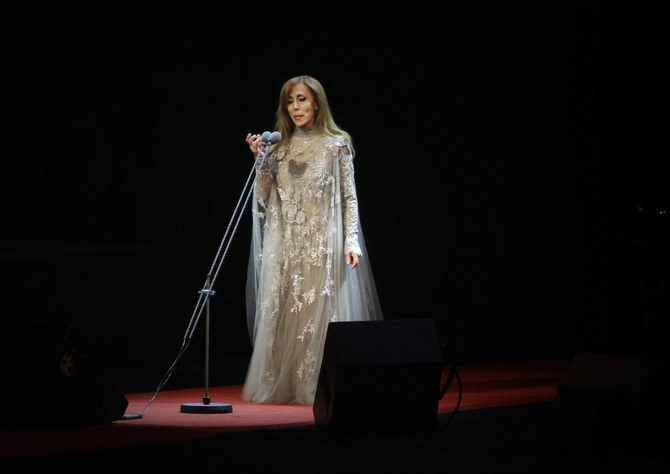TANIA SALEH (Singer-songwriter)
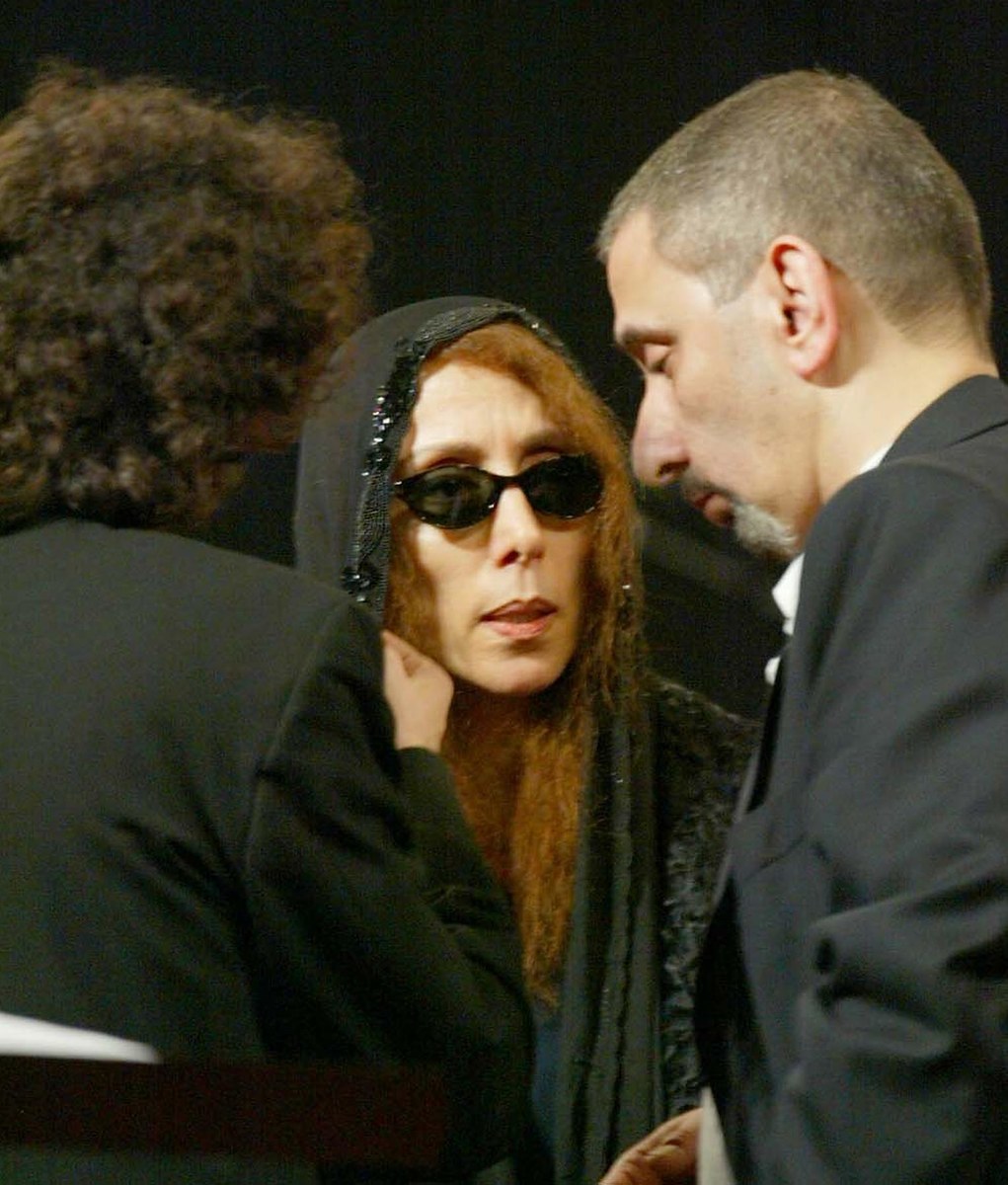
This album is a compilation of songs originally written by the Rahbany Brothers for Fayrouz. (AFP)
‘Ila Assy’ by Fayrouz and Ziad Rahbany
This album is a compilation of songs originally written by the Rahbany Brothers for Fayrouz. Ziad Rahbany wanted to pay homage to his late father, Assy, so he decided to rearrange those songs and give them a new life for new generations to discover. He said his father had always told him that the most important part of a song is the “main melody” and — whatever you try to add to it — that is the only thing people will remember. My guess is that this gave him a big challenge and — as he put it in the album notes — “those main melodies kept flirting with me, kept asking me to play them with different instruments like a woman who looks beautiful in all her outfits.” In my opinion, this album is the greatest achievement in Arabic music in terms of writing, arrangement, vocal and musical performance, and sound quality.
BOJAN PRERADOVIC (Empty Yard Experiment/Saytrip)
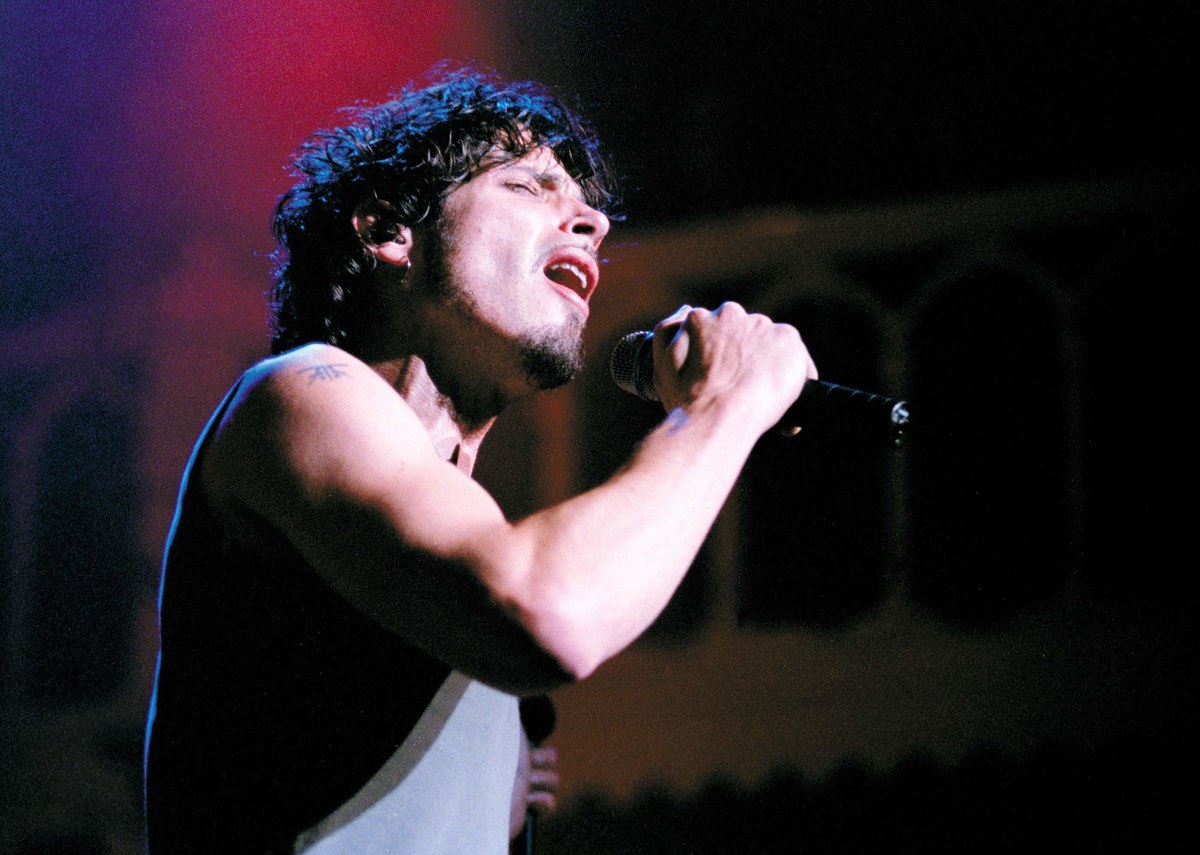
“Euphoria Morning” (1999) was Chris Cornell’s first post-Soundgarden solo album. (Getty)
‘Euphoria Morning’ by Chris Cornell
Those of us fortunate enough to be confined comfortably to our homes have nothing but time right now, which, incidentally, if invested in this record, is what makes it most rewarding. “Euphoria Morning” (1999) was Chris Cornell’s first post-Soundgarden solo album. Unburdened by any creative constraints or the expectations of Nineties’ alternative-rock audiences, Cornell crafted a formidable showcase of artistic courage and sincerity. The raw emotion of his feral wail and the unfettered skill with which he dispenses delightful vocal acrobatics from his four-plus-octave range are nothing short of breathtaking. Then there’s the songwriting: his musical partnership with Eleven’s Alain Johannes and Natasha Shneider was an inspired choice, sprinkling the record with depth and instrumental arrangements that color the proceedings with strokes of folk, blues, R&B, and even gospel. Cornell never made an album like this again, and nor has anyone else. Arm yourself with good headphones and dive in — you won’t regret it.
HAMDAN AL-ABRI (Singer-songwriter)
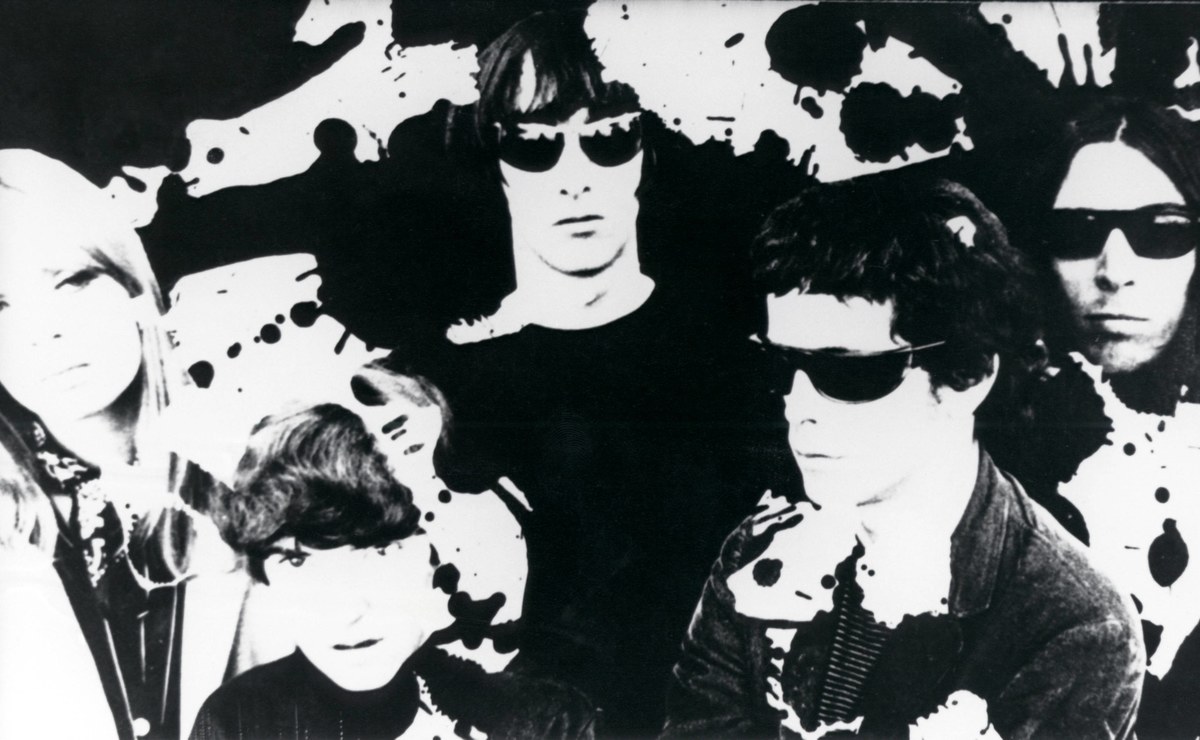
The Velvet Underground made music in their own unique way and did it on their own terms, according to Hamdan Al-Abri. (Getty)
‘The Velvet Underground & Nico’ by Nico and The Velvet Underground
I remember hearing “Run, Run, Run” for the first time quite a while ago. The song caught my attention immediately. The way it sounded was so imperfect, from the singing to the drumming to the actual recording. It was rough around the edges, but it had such an effect on me that I had to find the full album and learn more about this band. From “Sunday Morning” to “I’ll Be Your Mirror” (my favorite from the album), I was instantly hooked. I love this album even more because of the fact that it introduced me to so many other artists who were directly or indirectly linked to The Velvet Underground, including Andy Warhol, Lou Reed’s solo material, David Bowie, The Stooges, T.Rex, Jean-Michel Basquiat, and the list goes on. The Velvet Underground made music in their own unique way and did it on their own terms. That’s something I try to live by when it comes to my own music.
ANTHONY KHOURY (Adonis)
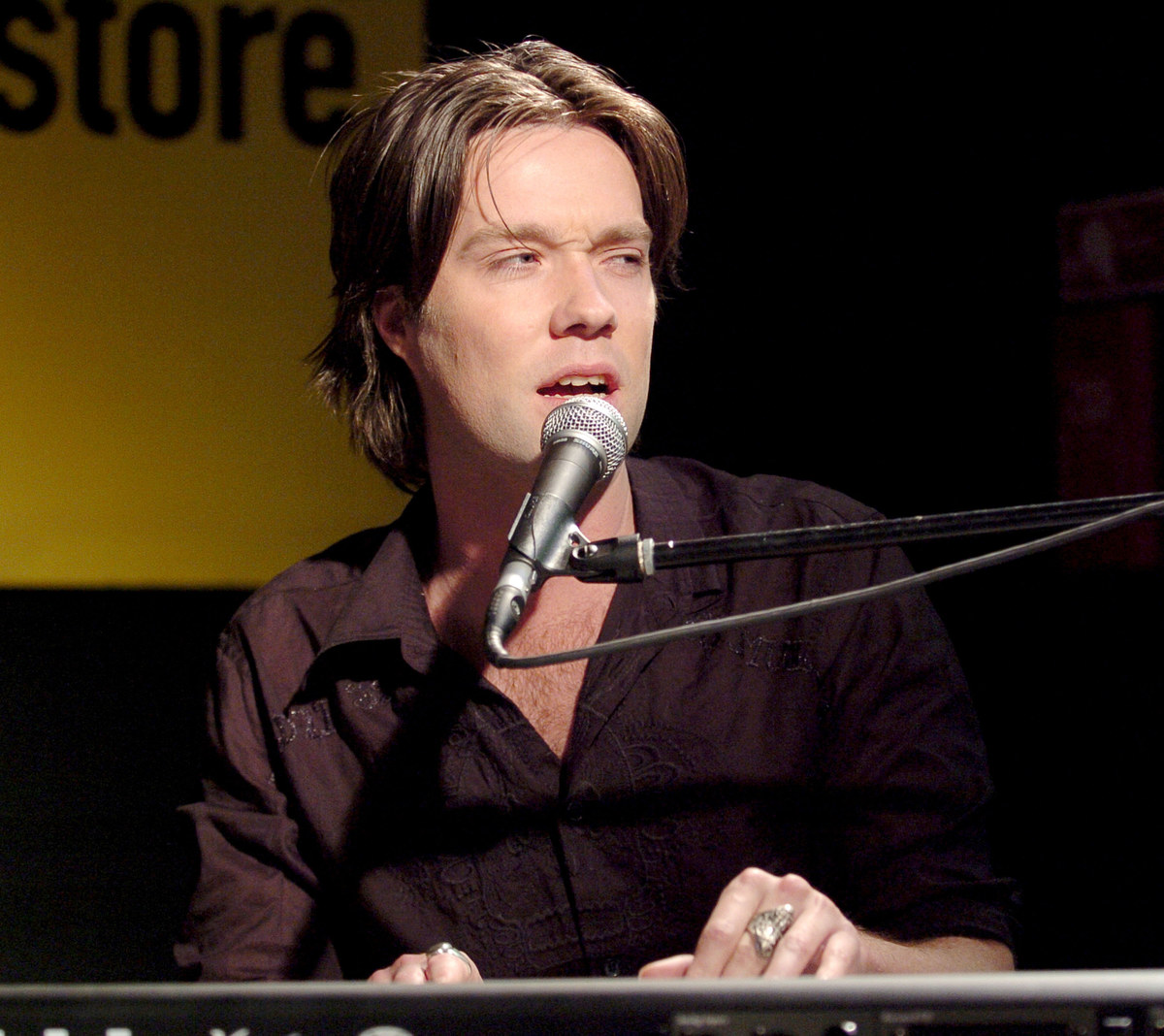
“Want” has been my ultimate musical masterclass on so many levels, according to Adonis. (Supplied)
‘Want’ by Rufus Wainwright
Canadian singer-songwriter Rufus Wainwright — who Elton John and David Bowie both described as one of the greatest songwriters of our time — released the exorbitant 28-track double-album “Want” in 2005, when he was recovering from a meth addiction that had left him temporarily blind. For the past decade, “Want” has been my ultimate musical masterclass on so many levels: The majestic vocals — which he owes to his parents, both famous folk singers; his excellent arrangements that stretch from intimate piano accompaniment to out-of-this-world orchestral passages; and, especially, the rare eloquence of his songwriting, that still has leave both critics and fans coming back to it today. My favorites: “Memphis Skyline,” an ode to Jeff Buckley, written before the latter’s tragic death; “Chelsea Hotel,” a chilling reprise of Leonard Cohen’s classic song (Wainwright has a child with Cohen’s daughter); and “14th Street,” a tribute to Wainwright’s New York, the decadent playground of his eternal quest for love.
NADER MANSOUR (Wanton Bishops)
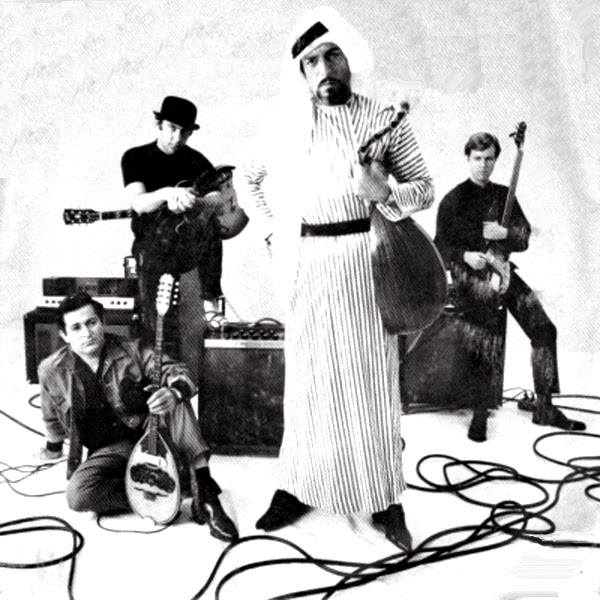
The band only recorded one album. (Supplied)
‘Hard Rock From The Middle East’ by The Devil’s Anvil
The Devil’s Anvil is one mysterious band. Formed in New York in 1966 by Kareem Isaq, Felix Pappalardi, Elierzer Adoram, Jerry Satpir, and Steve Knight, the band only recorded one album! (A myth about an additional EP circulate in collectors circles, but no one has ever seen it.) That album was “Hard Rock From The Middle East” and it features an exquisite brew of traditional Arab, Turkish, and Greek songs and that infamous Sixties rock sound. It’s ethnic, it’s psychedelic, at times it’s surf, but most of all, it’s so damn good. It helped shape the new Wanton Bishops sound. Released just a few months before the Arab-Israeli war of 1967, American radio stations then refrained from playing it, resulting in the end of a very short but highly promising career.
JULIA SABRA (Postcards)
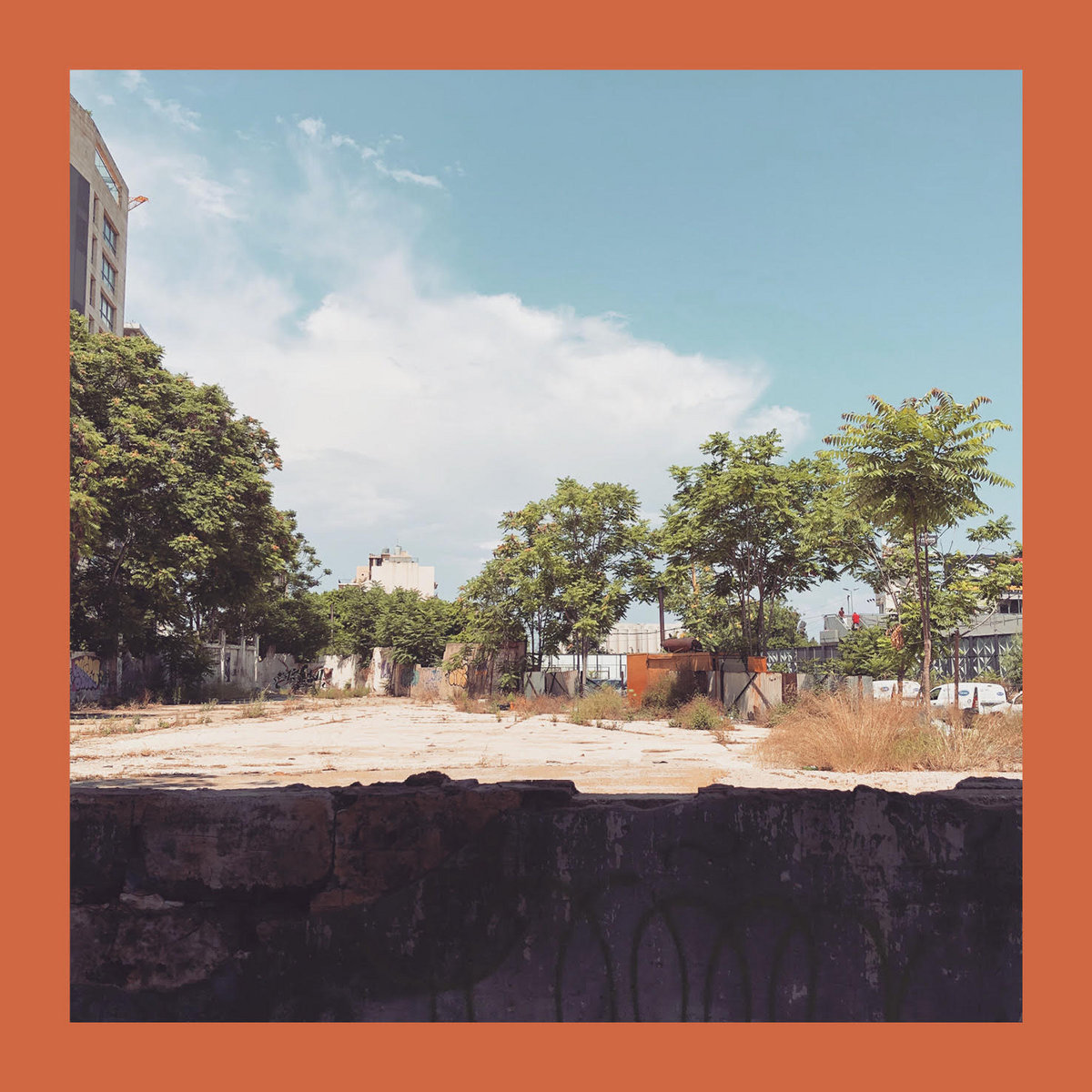
This album is recorded on guitar only. (Supplied)
‘Music For The Lonely Vol. 1’ by Fadi Tabbal
One of my favourite albums ever — with a fitting title for these absurd times. It’s my go-to whenever I feel anxious. Fadi is a close friend, but also, objectively, one of the greatest musicians out there (among many other things — he’s also a producer, sound engineer, and university professor). His music is a perfect combination of subtlety, complexity and emotional depth. There’s always a human element to everything he does, no matter how abstract the sounds or advanced the technique. This album is recorded on guitar only, and the richness of textures that he creates with just one instrument is baffling — in some parts you feel like you’re listening to an orchestra of synths, in others to a woodwind ensemble. My favourite track would have to be “Music for Arcs and Diameters,” and “Music for Sleeping Masks” is the perfect track to fall asleep to.
MAYSSA JALLAD (Safar)
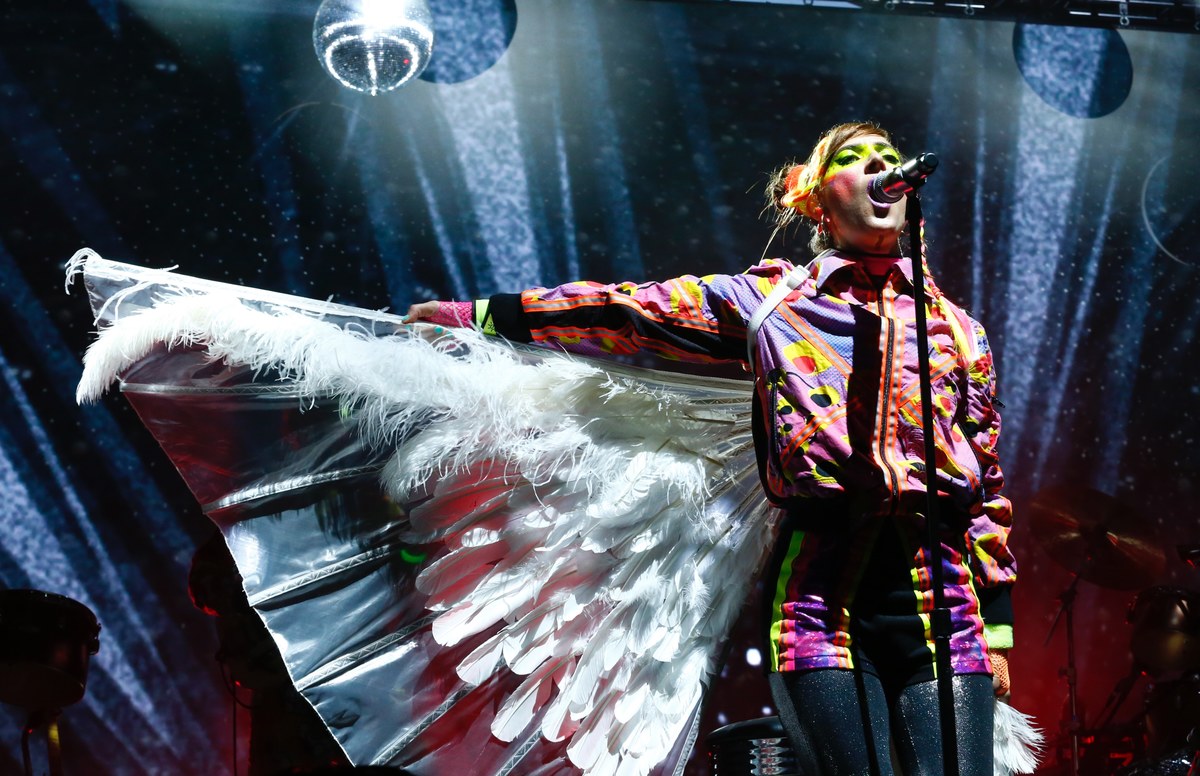
This album thinks of death as a beginning rather than an end. (Supplied)
‘Carrie and Lowell’ by Sufjan Stevens
It’s very strange to think of death as a beginning rather than an end. I think this album does just that. Stevens’ soft hushed voice guides and loses us through a conscious stream of wonder: How does life continue after the passing of a loved one? After the abandonment of a friend? He plucks through steady arpeggios and leaves us off floating somewhere uncertain. He often blames himself for his shortcomings, and remembers traumatic childhood experiences. He merges into nature and is possessed by unnatural forces. He inhabits myths and speaks to prophets. In its numbness, confusion and illumination, this album is grief incarnate. It is a reminder that we can outlive trauma and that there is comfort in acknowledging our common human nature. If you listen to it enough, “We’re all gonna die” starts sounding like “We have all lived.”
NUR ALF (Singer-songwriter)
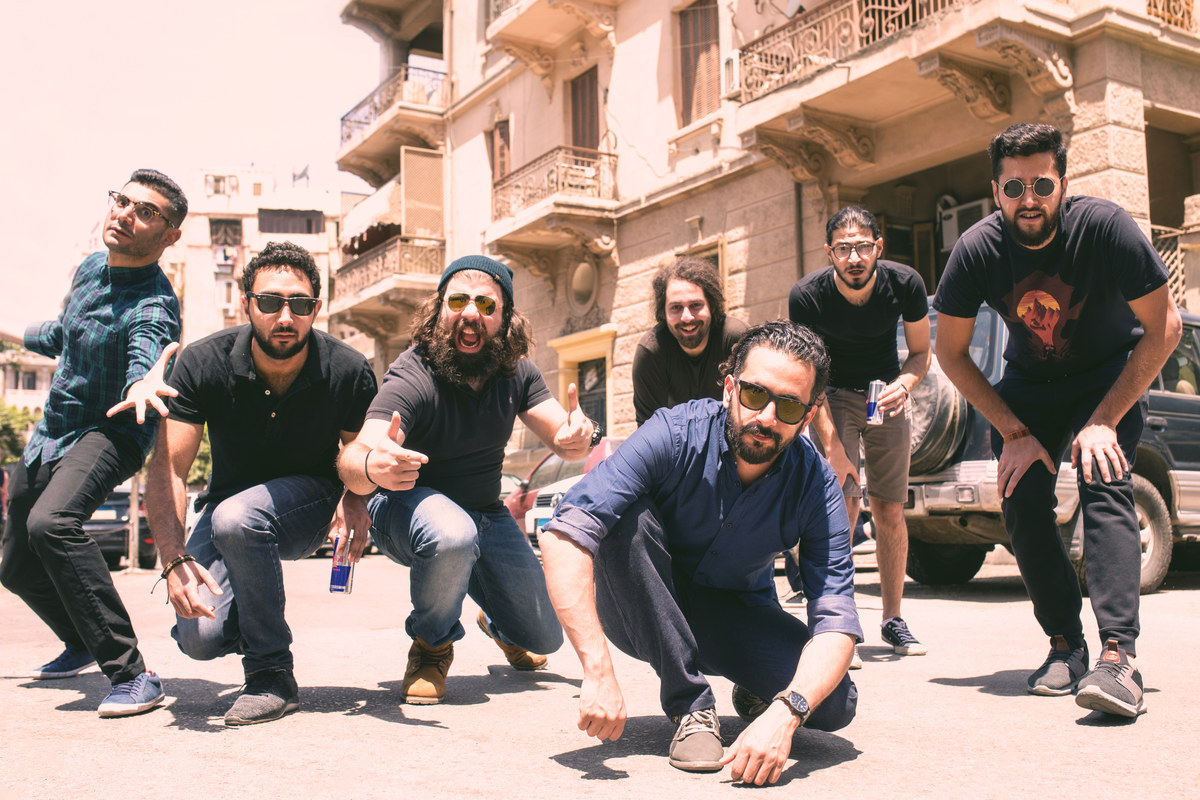
“Malyoun” was the first album on which Mahmoud Radaydeh took lead vocals. (Supplied)
‘Malyoun’ by Jadal
This album is the closest to my heart. It was my companion when I was exploring my own musicality. It was the first album on which Mahmoud Radaydeh (the founder and songwriter of Jadal) finally took lead vocals. At first, though, I actually disliked this record. I couldn’t appreciate it. It didn’t sound familiar, but that’s the secret to it. It makes you take the time to stop and allow it to take you on its own genuine journey, before you dive in to truly savor it. Mahmoud didn’t force the music or lyrics or performance, everything came naturally and is truly inspired. “Yomain o Laila,” in particular, is a whole album on its own. This song had a direct influence on my song “Bas Ba7awel.” Every time you listen to this record, listen closely — you will discover a whole new layer.
NABIL QIZILBASH (Sail Into Night)

“Lost Souls” is a rock record. (Getty)
‘Lost Souls’ by Doves
I like music that’s built on sadness. So Doves’ debut album is one of my favorites. While “Lost Souls” is a rock record, I love that the album also possesses the sensibilities of electronic music — you can hear synthesizers, samples, and all sorts of experimental work with pedals. This is the spirit that had me feeling like its OK for my band to use a drum machine to write rock songs. Some of my favorite songs include “Sea Song,” “Catch The Sun” and “Lost Souls.”
ESTHER EDEN (Singer-songwriter)

The album makes Esther Eden feel like a young teenager again having a ‘Twilight’ story of his own. (Supplied)
‘After Hours’ by The Weeknd
I hadn’t listened to the radio in a while, so during this corona-imposed time off, I decided to catch up on new releases. I’ve really enjoyed “Fine Line” by Harry Styles, “3.15.20” by Childish Gambino and “After Hours“ by the Weeknd. I really like the different styles of all three albums but “After Hours,” particularly, has been on repeat for me. The Weeknd does a great job of creating a unique atmosphere. Being a Nineties kid, it takes me back to all the movies I watched growing up, like “Twilight” (the album cover is vampire-themed too). The album makes me feel like a young teenager again having a ‘Twilight’ story of my own. He incorporates Nineties beats and instrumentation with a modern R&B/soul twist. “Hardest To Love,” “Heartless,” “In Your Eyes” and “Blinding Lights” are my favorite tracks, but I love the atmosphere of the whole album and can listen without skipping a track — quite rare these days. Just like how vintage clothing is back in style, I think artists like The Weeknd and Dua Lipa are doing a perfect job bringing back an older style with a modern touch.
ALLAN CHAARAOUI (Lazzy Lung)
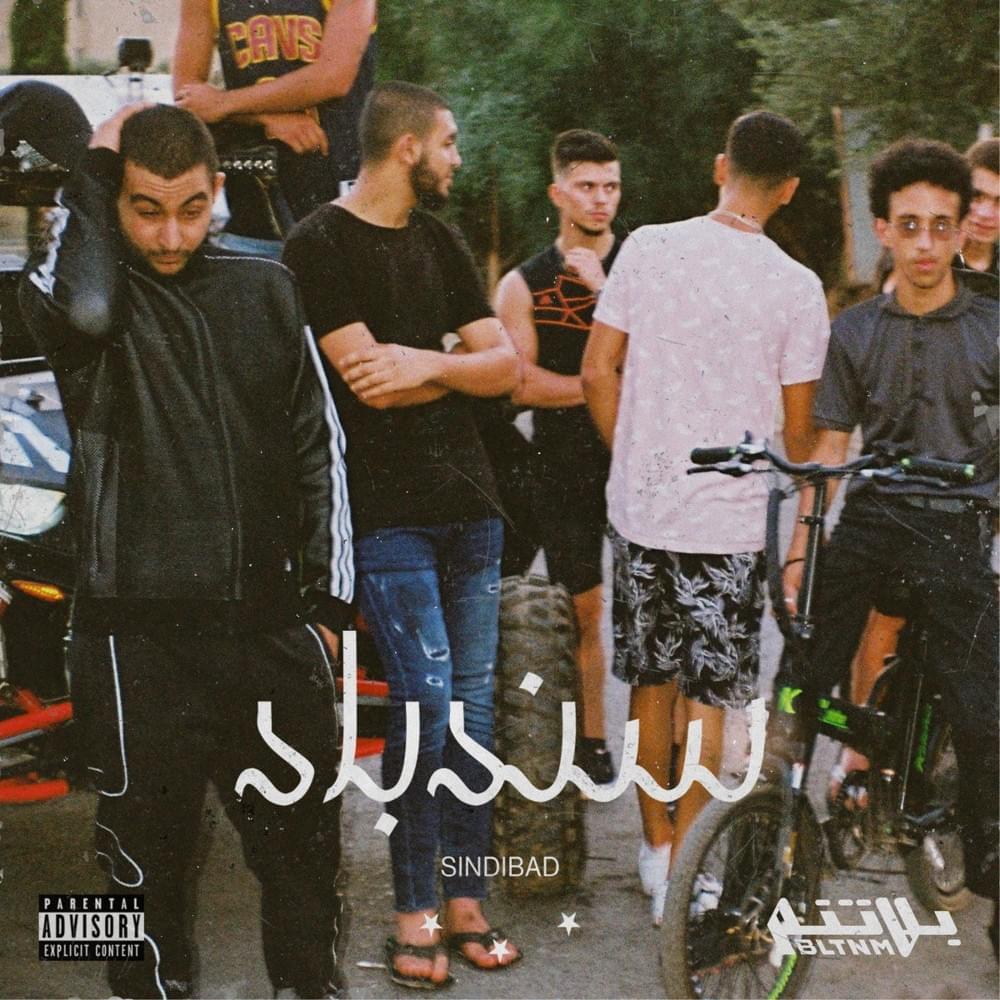
Shabjdeed stood out among ton of Arabic hip-hop heads and this record slaps. (Supplied)
‘Sindibad El Ward’ by Al-Nather and Shabjdeed
This recommendation may come as a surprise to some considering, well… let’s just say I don’t look like the Arabic rap type. The Arena rap battles here in Beirut have been taking off and I’ve been putting my weak Arabic skills to task. During the Beirut Scum Week Festival I was introduced to a ton of Arabic hip-hop heads like Synaptik, El Rass, Darwiche, and Chyno. Shabjdeed stood out among them all and this record slaps! Love the production and overall vibe. So if you’re new to Arabic hip-hop, these dudes know what’s up.
SHADY AHMED (Singer-songwriter)

“Rumors” has really stood the test of time. (Getty)
‘Rumors’ by Fleetwood Mac
Before we begin, I think we should discuss the concept of the ‘perfect record.’ It’s a title I have affectionately given many albums that I have listened to a meaningful amount of times and they have all had one thing in common — they are unskippable. You listen to the record front to back without skipping a single track… With that in mind, Fleetwood Mac’s 1977 album “Rumors” is a perfect record. It wasn’t just a turning point for the band, it was a turning point for pop radio, and highlighted the level of sophistication in the songwriting in pop culture at the time. 1977 gave us “Aja” by Steely Dan and Jackson Browne’s “Running On Empty” to name a few. Talk about competition! But years later, “Rumors” has really stood the test of time.
RAMI H. MUSTAFA (Nervecell)
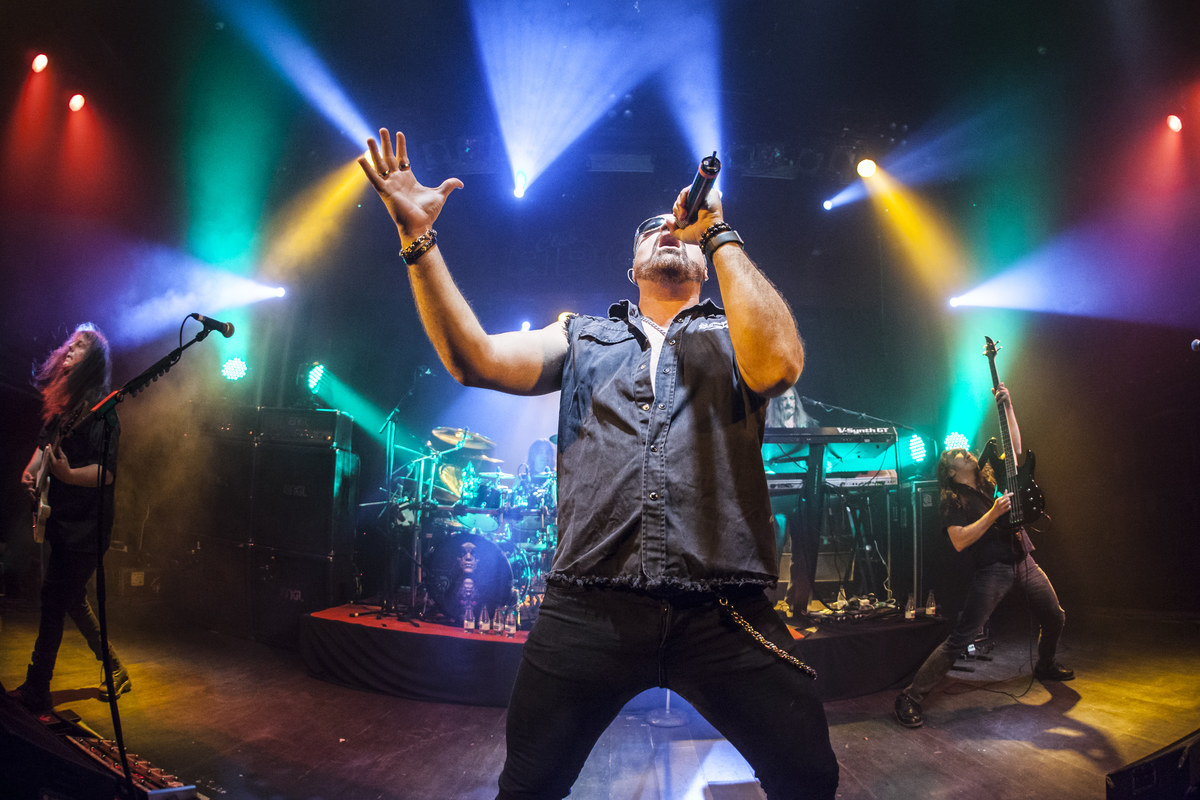
Symphony X’s “The Divine Wings Of Tragedy” is Rami H. Mustafa’s favorite progressive metal album (Getty)
‘The Divine Wings of Tragedy’ by Symphony X
In early 2000, a trusted friend recommended that I should check out this “Dream Theater rip-off band” Symphony X. Now, their “The Divine Wings Of Tragedy” is my favorite progressive metal album! Starting off with the guitar work — complex yet catchy, aggressive but emotional! The guitar solos are full of shredding techniques, loads of melodic elements and dominant neoclassical influences similar to Yngwie Malmsteen, which I really like. Russell Allen’s singing style is unique — his voice is like Ronnie James Dio on steroids! Besides that, the drummer, keyboardist and bassist are all virtuosos. This album is not just another prog metal album full of odd time signatures and musical techniques. Every song is perfect — catchy, proggy and full-on metal, with feel. Symphony X — and this album specifically — have been playing on loop in my cassette player, then CD players, and finally Spotify, ever since I first heard them.


